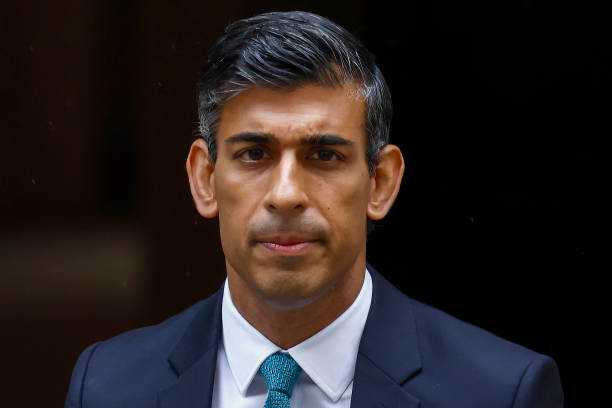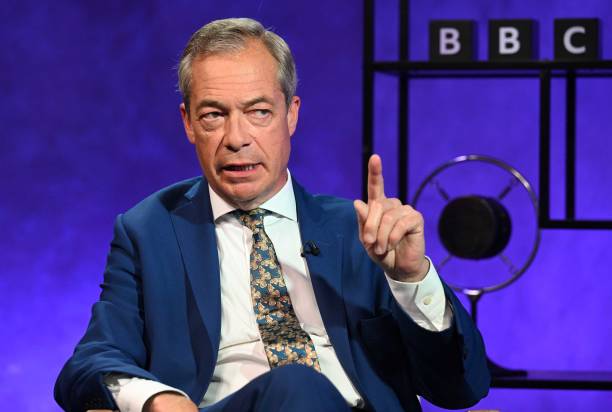Nigel Farage is being scrutinized more than ever during the UK election campaign following the discovery of video footage of Reform UK party activists uttering several kinds of racist and homophobic slurs. The Brexiteer, who plans on challenging the ruling Tories from the right with his insurgent Reform UK party, distanced himself from the “reprehensible” statements following a Channel 4 News expose.
In a statement released on Thursday night, Farage refuted the comments made by one of his campaigners, Andrew Parker. He seemed to take a different tack on Friday morning, asking if the individual Channel 4 had shot was genuine. In his statement, he expressed his dismay at the remarks made by a few individuals connected to his local campaign, especially the volunteers so he remarked that they will no longer be part of the campaign.
He also stated that neither Reform UK policy nor his personal beliefs, nor those of the great majority of their followers, are reflected in the abhorrent sentiments that some have voiced in these conversations. He further admitted that some of the language in the Channel 4 news footage was reprehensible.
The Reform leader also reiterated suspicions that the media unfairly focused on his party, stating that he was “interested to know” if Channel 4 was using “similar subterfuges” against other parties. It is the latest setback for Farage’s party, which has had to renounce or criticize several of its candidates since the election began. Due to their prior backing of the far-right British National Party, two were fired, and multiple others came under fire for spreading conspiracy theories about COVID-19 on the internet.
The news surfaced on Thursday just as the Conservatives, who appear certain to lose the election due to Farage’s spectacular entry into the contest, believed that they had discovered a strong angle to take on Farage for his assertion that the West “provoked” Putin’s conflict in Ukraine.
Table of Contents

Rishi Sunak’s Reaction on the Comment
Rishi Sunak has opened up about how hearing a Reform UK activist call him a racist epithet wounded and upset him. He further expressed his disappointment as his daughters also heard the entire interview and the public shaming of their father. Therefore, he also made a point of using the P-word, a derogatory term, himself because he believed it was critical to expose it for what it is.
According to Rishi Saunak, the misogynistic and racist language and opinions of Reform candidates and activists are unacceptable, and people in the UK should take note because they reflect the mentality of the Reform Party.
Even Lib Dem leader Ed Davey expressed his disapproval of the comments from the Reform Party, which were secretly recorded by Channel 4 News.
Objectives of Nigel Farage in the Election
After seven unsuccessful attempts, 60-year-old Farage is making his eighth attempt to be elected for the July 4 election in Britain. Therefore, Reform is fielding candidates in hundreds of seats in an attempt to gain support from the leading Conservative and Labour parties and has already disowned several candidates after the media disclosed their offensive comments.
Nigel Farage asserts that his primary objective is to establish a significant presence in Parliament and to position the Reform Party as the “real” opposition to a Labour Party administration, should the Conservatives lose their grip on power after fourteen years in office. Farage’s ambitions, however, face a stark reality: the Reform Party is anticipated to secure only a handful of seats, at most, within the 650-seat House of Commons. Despite these modest projections,
Farage remains steadfast in his determination, believing that even a small contingent of Reform Party MPs can exert considerable influence and disrupt the status quo in British politics. This strategic maneuver underscores his long-term vision of reshaping the political landscape and providing an alternative voice to both the traditional Conservative and Labour parties. His approach is based on the Reform Party of Canada, which helped drive the Conservatives there to the brink of extinction in a 1993 election and went on to transform Canadian conservative politics.



